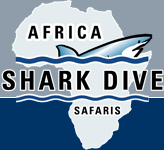|
|
BACK TO TOURS & PACKAGES: Scuba diving Tours
» ALIWAL SHOAL PACKAGES During the months of June through to November you are sure to see Ragged Tooth Sharks as they congregate on the Shoal to mate. It is not uncommon to find 15 to 150 of these ferocious looking but docile animals on a single dive. In summer you have every chance of seeing huge Tiger Sharks and Hammerheads. Depending on conditions the best dives are Cathedral, Raggie Cave, Shark Alley and a number of other spots.
» PROTEA BANKS PACKAGES High adventure diving with Tiger, Ragged Tooth, Zambezi and Hammerhead Sharks - no cages. Protea Banks is rated as one of the world's best shark diving spots, situated approximately 1.5 hours drive from Durban. Diving at Protea Banks is an advanced dive and every diver should have done at least 20 dives. Protea Banks lies 8 kilometers offshore from Shelly Beach. Here divers have the opportunity to see large schools of pelagic fish, many rays like the Spotted Eagle and Manta rays, three species of Hammerheads, Bull Sharks, Tiger Sharks, Ragged Tooth Sharks Threshers, Coppers, Duskies Sand Sharks and the occasional Great White in their natural environment. Depending on the season one can also see dolphins and whales. Visibility varies from 5 to 40 meters, and the water temperature in summer is 24+ degrees Celsius and in winter not colder than 19 degrees Celsius. The depths vary between 30 and 40 meters and one must be an experienced diver for these often 4 knot mid-water drift dives. This is adventure diving at it's best.
» SODWANA BAY PACKAGES Lazy tropical diving in true African style. See an abundance of tropical fish, hard and soft coral, sponges, moray eels, large schools of pelagic fish, potato bass, turtles (hawksbill, loggerhead, green, leatherback) and depending on the time of year, whales (southern right, humpback), whale sharks and dolphins. It is widely accepted that Sodwana Bay is the Mecca of diving in South Africa and is approximately 4 hours drive from Durban. The bay is situated in a marine reserve that now forms part of the World Heritage classified Greater St Lucia Wetlands Park, and makes for safe and relaxed diving. Visibility is rarely less than 15 meters, and the water temperature in summer is 24+ degrees Celsius and in winter not colder than 19 degrees Celsius. The depths vary between 12 to 18 meters with 30 and 50-meter sites for the suitably qualified. The dives are all done from semi-rigid boats, with exiting launches through the surf!
» GANSBAAI PACKAGES Seal diving, kelp forest diving, wreck diving, u/w naturalist reef diving, u/w adventure sports using scooters & rebreathers… whatever your experience, whatever you've dreamed of doing, we can make it happen.
Pricing:
» CAPE TOWN PACKAGES Cape Town and environs has many excellent wreck, seal and kelp dives. Depending on conditions one can dive the Indian or the Atlantic Oceans, and often the site is only decided on the day of diving.
More information: Scuba diving at Aliwal Shoal Scuba diving at Protea Banks Scuba diving at Sodwana Bay Scuba diving in Gansbaai Scuba diving in Cape Town
Dive sites of Aliwal Shoal
Scuba diving Aliwal Shoal Aliwal Shoal is approximately 30 minutes drive from Durban. Selected as one of the top ten dives sites of the world by the Diver Magazine, the Shoal is a definite must.
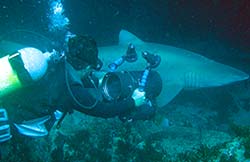 Should you tire of the sharks, you can always dive on any of the wrecks or go hunting for the huge (and I mean huge) Brindle Bass! Other species (depending on the season include Manta, Devil and other Rays, schools of pelagic fish, whales, dolphins, and many, many more! Visibility varies from 5 to 40 meters, and the water temperature in summer is 24+ degrees Celsius and in winter not colder than 19 degrees Celsius. The depths vary between 6 to 18 meters with 30 -meter sites for the suitably qualified. The dives are all done without cages and afford the unique opportunity to see these animals in their natural environment! International travellers can fly into Johannesburg International Airport and take a connecting flight to Durban International Airport.
Cathedral
The Pinnacles
Raggie Cave and Shark Alley
North Sands
South Sands
The Produce (1974)
The Nebo (1884)
Scuba diving Protea Banks 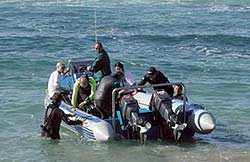 Visibility varies from 5 to 40 meters, and the water temperature in summer is 24+ ° C and in winter not colder than 19 ° C. The depths vary between 30 and 40 meters and one must be an experienced diver for these often 3 knot mid-water drift dives. This is adventure diving at it's best but for experienced divers only.
Species encountered on the reef include: Ragged Tooth Sharks (grey nurse or sand tigers) come to Protea Banks in Kwazulu-Natal in spring (August/September) as part of their breeding ritual. Placid and slow moving, the "Raggies" accept the divers without fuss. November brings the game fish and they are followed by the Zambezi (bull) Sharks, classed as a dangerous species. Hammerheads do not follow any seasonal pattern. They are shy and keep their distance. Tiger sharks are a often seen in summer but they tend to keep their distance. The sardine run in June/July brings the copper sharks. They scan the surface for the sardine shoals. Quick but shy, they are the smallest of the 7 species of shark commonly found in this area.
Northern Pinnacles: Depth 28-38m
Southern Pinnacles: Depth 26-35m Summer is also the time for game fish when schools of Yellowtail, Kingfish, Pike and Tunny are often encountered. March and April are good months for manta rays - Huge ones too! Be prepared to visit the Kingfish Gully for a spectacular treat of a large kingfish concentration. The Sand Shark Gully is also the best "gathering" place for various species of sharks.
Scuba diving Sodwana Bay 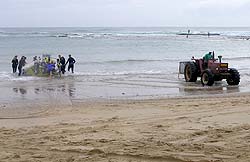 You can expect to see an abundance of tropical fish, hard and soft coral, sponges, moray eels, large schools of pelagic fish, potato bass, turtles (hawksbill, loggerhead, green, leatherback) and depending on the time of year, whales (southern right, humpback), whale sharks and dolphins. Visibility is rarely less than 15 meters, and the water temperature in summer is 24+ ° C and in winter not colder than 19 ° C. The depths vary between 12 to 18 meters with 30 and 50-meter sites for the suitably qualified. The dives are all done from semi-rigid boats, with exiting launches through the surf!
Two Mile Reef:
Five Mile Reef:
Seven Mile Reef:
Nine Mile Reef:
Scuba diving in Gansbaai 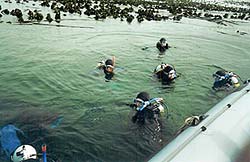 Diving the Cape Waters is an adventure in itself. Join our experienced Instructors & Divemasters who will organise the perfect dive package. Experienced or novice, we offer small exclusive charters for personalised service. We will tailor the dive to suit your experience & desires. Have your underwater adventure filmed, or learn to film it yourself! Try our digital photography course…its really that easy.
PROFESSIONAL VIDEO CREW SERVICE We use top of the range sony digital 3 chip and HD cameras, mounted on poles, in order to capture first rate images. We also offer full film crew logistical support, including organising, Topside Cameramen, Soundmen, additional camera equipment, helicopters with trained pilots, support boats, catering, transport and accommodation, to suit all budgets. Combining the latest technology in audio visual equipment with our many years of experience, we will capture every occasion on DVD for you to relive over and over.
Romans Bay
De Kelders
Black Sophie
Dyer island
Scuba diving in Cape Town 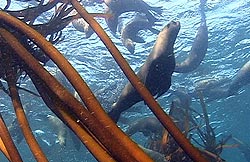 Visibility varies from 1 to 20 meters, and the water temperature in summer is 14 ° C and in winter down to 8 ° C. A dry suit is recommended. The depths vary between 5 and 40 meters and the dives are done either from hard boats, RIBs or by shore entry. Most sites are easily accessible from the roads and subsequently a lot of shore diving is done here. The area is very picturesque and there are many activities for non-diving companions while you are busy blowing bubbles with the fishies. These include some of the most scenic hiking trails in the mountains, horse rides, sunbathing on white beaches and for those who prefer a less active holiday, shopping.
|
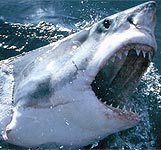

DIVE TOURS TO ALIWAL SHOAL, GANSBAAI, PROTEA BANKS AND SODWANA BAY – REEF DIVES, SHARK DIVES AND WRECK DIVES
copyright © Africa Shark Dive Safaris
solutions by MANTA SEO Solutions
